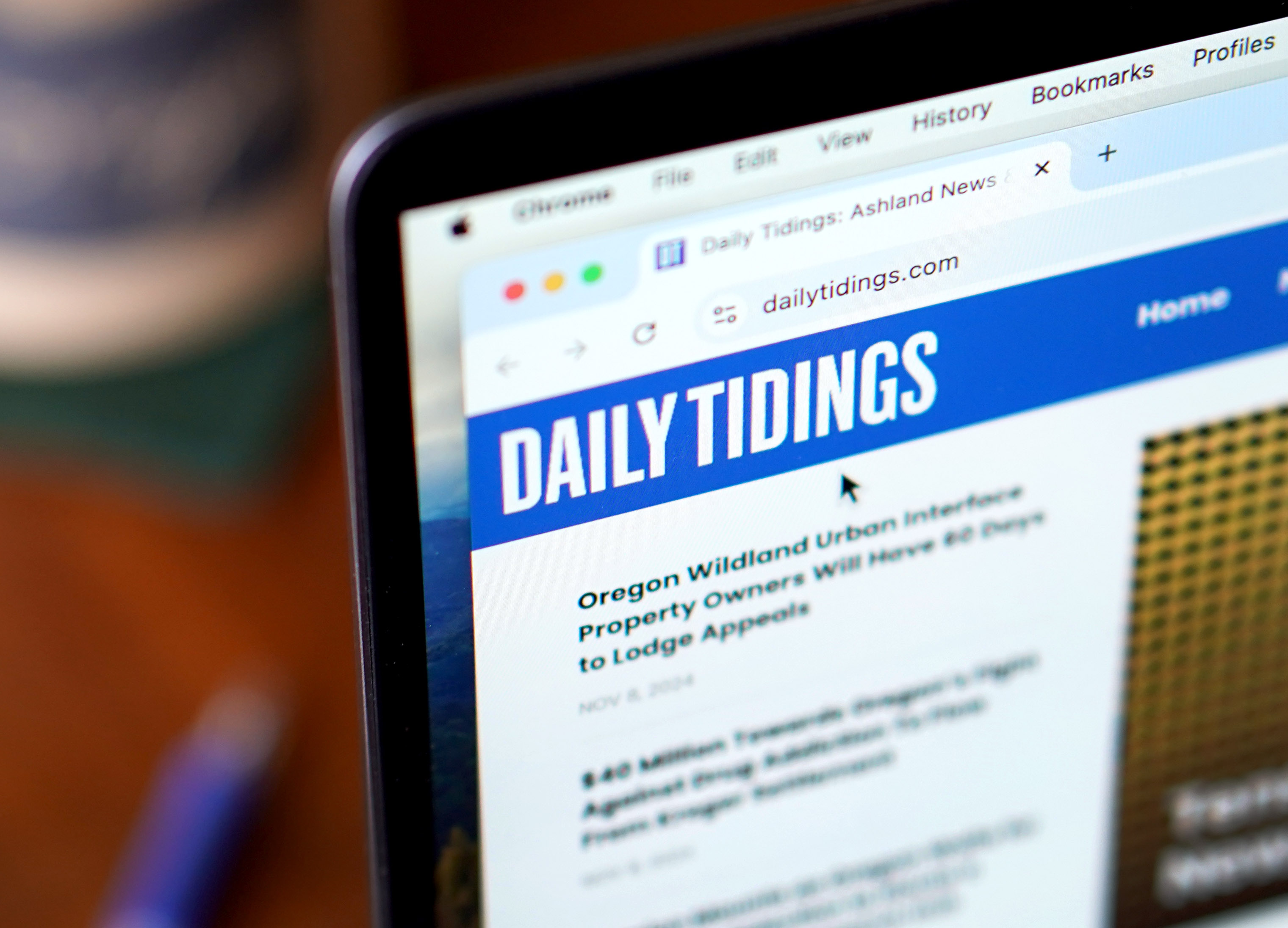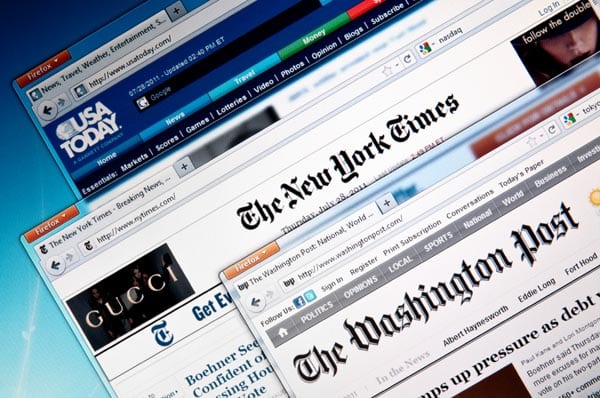The Importance of Fact-Checking worldwide of News Online
The prevalence of misinformation in today's online news landscape has actually gotten to startling levels. Fact-checking organizations play a necessary role in combating this pattern. They verify insurance claims and improve the credibility of journalism. The performance of these organizations usually hinges on their approaches and public perception. As audiences browse this complex setting, the implications of their searchings for may shape the future of news usage and count on. What does this mean for the honesty of information moving on?

The Increase of False Information in the Digital Age
How has the arrival of digital modern technology added to the spread of false information? The fast growth of the internet and social media systems has helped with the dissemination of details at an unprecedented speed. Customers can share posts, videos, and point of views with a plain click, usually without confirming the web content's precision. Formulas prioritize mind-blowing or mentally billed product, bring about an expansion of misleading stories that capture interest.
Additionally, the anonymity paid for by digital systems allows individuals to spread incorrect information without responsibility (stnews.live). False information grows in resemble chambers, where users are subjected mostly to viewpoints that enhance their ideas, better entrenching fallacies. The saturation of information can bewilder users, making it testing to discern trustworthy sources from unstable ones. Consequently, false information has actually come to be a pervasive problem in the digital landscape, affecting public viewpoint and rely on legit news sources
The Role of Fact-Checking Organizations
Fact-checking organizations play a vital role in improving the trustworthiness of journalism by verifying insurance claims made in report. Their initiatives are essential in combating false information, making certain that exact info prevails in the electronic landscape. By holding media electrical outlets accountable, these companies contribute considerably to educated public discussion.
Enhancing Credibility in Journalism
While misinformation proliferates in the digital age, fact-checking organizations play an essential function in improving the integrity of journalism. These organizations diligently confirm cases made in newspaper article, public declarations, and social media posts, ensuring that info disseminated to the general public is exact and reliable. By providing independent analyses, they act as an essential source for journalists, aiding them preserve high requirements of stability. In enhancement, their efforts advertise transparency in media, cultivating public trust fund. As target markets end up being increasingly critical, the presence of reliable fact-checking entities can distinguish trustworthy news sources from those that may spread out frauds. Ultimately, the dedication of fact-checking companies to copyright truthfulness is critical for the health and wellness of autonomous discussion.
Combating False Information Efficiently
As misinformation proceeds to spread out quickly throughout digital systems, the duty of fact-checking companies comes to be progressively crucial in the battle for accurate information. These organizations function as guard dogs, scrutinizing insurance claims made by public numbers and media outlets to guarantee responsibility. By using extensive study methods and specialist evaluation, they confirm realities and clarify deceptive narratives. Their searchings for are distributed with various networks, informing the public and fostering crucial reasoning. Additionally, collaborations with social media systems improve their reach, allowing for prompt flagging of incorrect information. As digital proficiency grows, the impact of fact-checking companies is necessary in empowering audiences to recognize truth from falsehood, eventually contributing to an extra educated culture.
How False Information Affects Public Perception
False information significantly weakens trust fund in media, leading target markets to wonder about the credibility of news sources. As a result, individuals typically are attracted in the direction of outlets that enhance their present beliefs, adding to the polarization of opinions. This dynamic develops a fragmented details landscape, where shared understanding becomes increasingly tough to attain.
Count on Media

Rely on media has ended up being increasingly delicate in the digital age, where the quick spread of incorrect details can skew public perception. As misinformation multiplies across social media and on the internet systems, target markets frequently locate it testing to recognize trustworthy resources from unstable ones. This unpredictability fosters skepticism, leading several individuals to question the intentions behind news reporting. As a result, rely on established media electrical outlets has decreased, as consumers progressively turn to different resources that might lack rigorous content requirements. This erosion of count on not just affects private beliefs however additionally undermines the collective ability to take part in informed discussions. Inevitably, the honesty of journalism is at risk, highlighting the vital need for reliable fact-checking to bring back confidence in the media landscape.

Polarization of Opinions
The increasing uncertainty toward conventional media has added to an expanding polarization of opinions amongst the general public. False information, often shared through social networks and on-line platforms, plays a significant role fit distinctive ideological separates. Individuals often seek info that aligns with their visit this site right here pre-existing beliefs, reinforcing their point of views while disregarding opposing point of views. This resemble chamber impact heightens divisions, resulting in a fragmented public discussion where consensus becomes progressively elusive. Furthermore, sensationalized narratives prosper in this environment, further skewing public perception and fostering wonder about in credible resources. As polarization intensifies, the requirement for reliable fact-checking ends up being vital to link voids and promote notified discussions, inevitably making certain an extra natural culture efficient in maneuvering intricate problems.
Techniques for Efficient Fact-Checking
Reliable fact-checking depends on a methodical technique that includes thorough research study, verification of resources, and crucial evaluation of claims. A fundamental strategy is cross-referencing details from numerous reliable resources to validate its precision. Fact-checkers typically make use of specialized databases and archives to trace the beginning of particular statements, ensuring that the reported info lines up with recorded evidence.
Another vital method includes inspecting the context in which claims exist. Misleading information can develop from out-of-context quotes or selective data usage. By analyzing the broader narrative, fact-checkers can recognize potential biases or misinterpretations.
Additionally, engaging with experts in pertinent fields can provide clearness and understanding that improves the fact-checking procedure. This partnership can uncover subtleties that laypeople might overlook - stnews.live. Eventually, a disciplined method integrating these strategies cultivates a much more informed public, improving the dependability of information disseminated in the electronic age
The Influence of Social Network on News Usage
Exactly how has social media sites transformed the way individuals consume news? The emergence of platforms like Facebook, Twitter, and Instagram has significantly modified news consumption patterns. News is currently shared rapidly, enabling users to accessibility real-time updates and pop over here engage with web content through sort, shares, and comments. This immediacy has cultivated a choice for bite-sized info, commonly at the expenditure of thorough analysis.
Social media allows personalized news feeds, where formulas curate web content based on individual choices, creating echo chambers that may limit direct exposure to diverse perspectives. The duty of standard news electrical outlets has actually diminished as people significantly depend on peer referrals and trending topics. Subsequently, the integrity of information is commonly jeopardized, as sensationalism can eclipse valid coverage. On the whole, social media has reshaped news consumption, stressing speed and personalization while challenging the requirements of journalistic stability.
Encouraging Audiences to Recognize Dependable Sources

Additionally, analyzing the authorship and business background of news articles can disclose possible biases. Cross-referencing details throughout several respectable electrical outlets further enhances the verification process. Using electronic tools, such as internet browser extensions that rank the trustworthiness of websites, can additionally aid in determining credible details. By proactively engaging with these sources and growing a vital attitude, target markets can better furnish themselves to discern dependable news sources, ultimately cultivating a much more informed society in the middle of the complexities these days's media environment.
The Future of Journalism and Fact-Checking
As the media landscape develops, the future of journalism and fact-checking deals with both tests and opportunities. The rise of electronic platforms has actually democratized details circulation, allowing diverse voices to arise. Nevertheless, this has actually additionally caused the expansion of misinformation, requiring robust fact-checking Find Out More systems. Reporters will progressively rely on innovation, consisting of AI tools, to verify truths rapidly and effectively.
Partnership in between wire service and fact-checking entities is prepared for to reinforce integrity and openness. Target market interaction will certainly play a necessary duty, as informed visitors come to be considerable partners in recognizing reliable web content.
The need for accountability and accuracy is most likely to expand, pressing reporters to maintain high standards in their reporting. Ultimately, the future of journalism might pivot on its capability to adjust to technological advancements while preserving journalistic stability, making sure that fact-checking continues to be a keystone of trustworthy news.
Regularly Asked Concerns
Exactly How Can I Report False Information I Come Across Online?
To report misinformation experienced online, individuals can use platform-specific reporting tools, supply clear proof, and share the information with fact-checking organizations. Involving with area discussions can additionally assist elevate understanding concerning the false information.
What Are Common Indications of Misinformation in News Articles?
Usual indications of misinformation in news posts include astonishing headlines, absence of reputable resources, psychological language, inconsistent realities, and absence of writer qualifications. Viewers ought to seriously examine content for these signs to discern accuracy.
Just How Do Fact-Checkers Confirm Resources?
Fact-checkers confirm sources by cross-referencing information with credible databases, speaking with specialists, and checking out the initial context of claims. They likewise analyze the dependability of the sources, making sure accurate and credible details for public consumption.
What Legal Actions Can Be Taken Versus Misinformation?
Legal actions against misinformation might include defamation claims, cease-and-desist orders, and regulative fines. Victims can seek redress with civil courts, while some territories enforce fines or sanctions on platforms sharing false info.
Exist Apps for Fact-Checking News On-The-Go?
Numerous apps exist for fact-checking news on-the-go, including Snopes, FactCheck.org, and PolitiFact. These applications assist users verify cases quickly, advertising educated decision-making and cultivating a more discerning approach to consuming news in real-time.